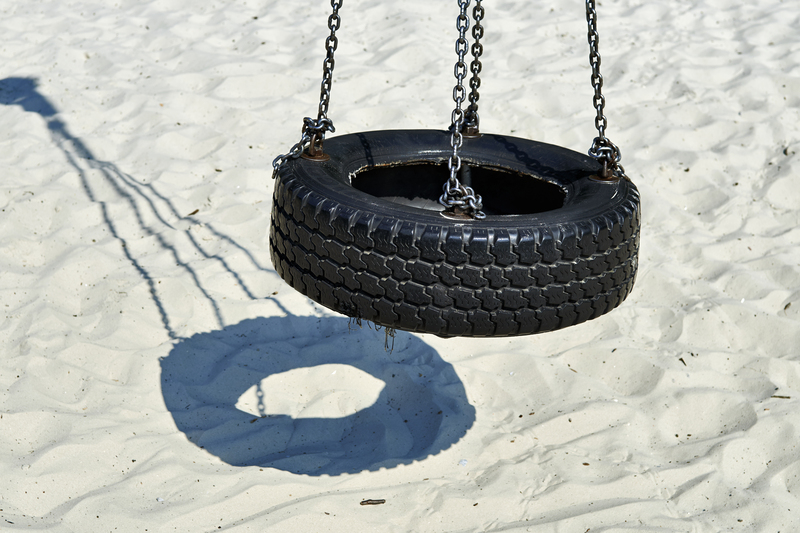Waste Disposal: Recycling vs Landfill
Posted on 27/02/2024
In today's world, waste disposal has become a pressing issue due to the increasing amount of waste being produced by human activities. The improper disposal of waste can have severe impacts on the environment, public health, and economy. As a result, there is a growing focus on finding sustainable ways to manage waste. Two of the most common methods of waste disposal are recycling and landfill. Both approaches have their advantages and disadvantages. In this article, we will explore the differences between recycling and landfill and discuss their pros and cons.
Recycling is a process that involves collecting, sorting, and processing materials that would otherwise be thrown away as trash. These materials are then turned into new products or raw materials for manufacturing. On the other hand, landfill is a method of waste disposal where waste is buried in large landfills lined with plastic or clay to prevent contamination of the surrounding soil and groundwater.
Benefits of Recycling
1. Reduces Waste: Recycling helps to reduce the amount of waste sent to landfills. By reusing materials, less trash ends up in landfills, reducing the need for more landfills to be created.
2. Saves Energy: Recycling also helps conserve energy as it takes less energy to process recycled materials than it does to produce new ones from raw materials. For instance, making recycled aluminum cans requires 95% less energy than making new ones from bauxite ore.
3. Protects Natural Resources: By using recycled materials, we can reduce our dependence on natural resources like timber, water, and minerals.
4. Reduces Pollution: Recycling also helps reduce pollution caused by extracting, refining, and processing raw materials for manufacturing. It also prevents greenhouse gas emissions as recycling reduces the need for industries to produce new products from scratch.

Drawbacks of Recycling
While recycling has its benefits, it also has some drawbacks that need to be considered.
1. Costly: The process of recycling can be quite expensive due to the various steps involved, such as collection, sorting, cleaning, and processing. This cost is often passed on to consumers, making recycled products more expensive than non-recyclable ones.
2. Contamination Problems: Recycling also requires waste to be sorted correctly, which is a challenge as many materials look similar. Contaminated recyclables can ruin an entire batch of material, leading to additional costs and efforts to clean them up.
3. Limited by Technology: Not all materials are currently recyclable, and advancements in technology are needed to recycle some types of plastic and other materials.
Advantages of Landfill
1. Affordable: Landfills are relatively cheap compared to other waste management methods like incineration or recycling. This makes it preferable for handling large amounts of waste in developing countries with limited resources.
2. Provides Land for Development: Once a landfill reaches its capacity, it can be covered with soil and plants can grow on top. This land can then be used for parks or other developments.
3. Simple Process: Landfilling does not require complicated equipment or technology, making it an easy method for waste disposal.
Disadvantages of Landfill
1. Environmental Concerns: One major disadvantage of landfills is the potential harm they cause to the environment. As waste decomposes, it produces methane gas and leachate (liquid that contains harmful chemicals). If these substances are not contained properly, they can contaminate groundwater and contribute to air pollution.
2. Space Constraints: With the increasing amount of waste being generated worldwide, landfills are rapidly filling up. Finding new space for landfills is becoming increasingly difficult due to environmental concerns and opposition from the public.
3. Not Sustainable: Landfills create long-term environmental problems that continue even after they are no longer being used for waste disposal. They take up large amounts of land and can contaminate surrounding areas, making them unsuitable for any other use.
Tips for Effective Waste Disposal
1. Practice the 3Rs: Reduce, Reuse, and Recycle. This will help minimize the amount of waste you generate and decrease the need for new landfills.
2. Separate Recyclables: Properly sort your recyclables to avoid contamination and ensure that they are recycled correctly.
3. Choose Eco-friendly Products: Look for products made from recycled materials or with recyclable packaging to support the recycling industry.
4. Dispose of Hazardous Materials Properly: Some materials like batteries, chemicals, and electronics should not be thrown in the trash as they can harm the environment. Find a local hazardous waste disposal center in your area.

Takeaways
- Recycling helps conserve natural resources and reduces pollution but can be costly and limited by technology.
- Landfills are affordable and easy to manage but have significant environmental impacts and are not sustainable.
- By practicing the 3Rs and choosing eco-friendly products, we can reduce our waste and support recycling efforts.
- Proper disposal of hazardous materials is essential to protect the environment.
Conclusion
In conclusion, both recycling and landfill have their pros and cons when it comes to waste disposal. While recycling offers numerous benefits, it also has its limitations, while landfilling is a simple and affordable method but has long-term negative impacts on the environment. To address this issue effectively, there needs to be a balance between the two methods as well as investment in developing more sustainable waste management solutions. As individuals, we can do our part by reducing our waste and properly disposing of it to protect our planet for future generations.



